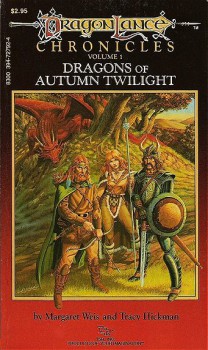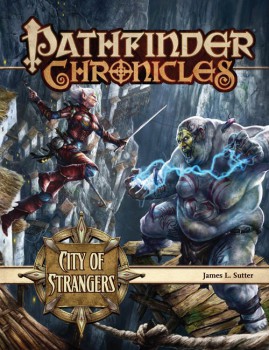Black Gate Interviews James L. Sutter, Part Three
 This week concludes Black Gate‘s interview with author and editor James L. Sutter with a discussion of the pros and cons of media-tie in fiction, the Before They Were Giants anthology which collects the first sale short fiction of many big name writers, and a look at what James is working on now. Be sure to check out parts one and two of this interview, as well as our review of James’ new novel Death’s Heretic.
This week concludes Black Gate‘s interview with author and editor James L. Sutter with a discussion of the pros and cons of media-tie in fiction, the Before They Were Giants anthology which collects the first sale short fiction of many big name writers, and a look at what James is working on now. Be sure to check out parts one and two of this interview, as well as our review of James’ new novel Death’s Heretic.
You recently wrote an informative guest post at Inkpunks about the pros and cons of media tie in fiction from a writer’s perspective. What are your thoughts on media tie in books in general, from a reader’s perspective? They seem to be more popular than ever in stores, but would you say some of the reluctance or distrust many readers seem to have for tie in work is still an obstacle in the marketplace?
I think that science fiction and fantasy readers (the only genre I really feel qualified to comment on) have a love/hate relationship with media tie-in books. Many of us start out there–I know I read plenty of Star Wars and Dragonlance and Indiana Jones books as a kid. Tie-ins are a natural entry point into the genre, because those books deal with something you already know you like–movies, games, etc. Yet as we read further into the genre, I think many of us begin to associate those books solely with our humble beginnings. We fancy ourselves more sophisticated, and begin to define ourselves by our less mainstream tastes. Books with logos on the cover start to seem too lowbrow, or like blatantly commercial cash grabs rather than true art.
 Last week we were just getting started in
Last week we were just getting started in  I recently caught up with Paizo’s James Sutter for a conversation about his work heading up Pathfinder’s new fiction line, as well as his own writing and influences. In part one of our conversation James tells us about his new novel for Pathfinder,
I recently caught up with Paizo’s James Sutter for a conversation about his work heading up Pathfinder’s new fiction line, as well as his own writing and influences. In part one of our conversation James tells us about his new novel for Pathfinder,